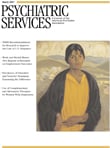The book This Changes Everything is a history of academic and clinical courage. The author, Christina Robb, is a Pulitzer Prize-winning writer and journalist. She was a writer for the Boston Globe for more than 20 years.
This Changes Everything describes the cultural atmosphere in academic and clinical environments in the 1970s, specifically the psychology and psychiatry training at Harvard and at Wellesley, as well as at training centers such as McLean Hospital. Highly skilled academics, clinicians, and psychiatrists who were coming into their own professionally emerged at these institutions. Carol Gilligan at Harvard University, Jean Baker Miller at Wellesley College, Judith Lewis Herman at Harvard Medical School, and more of their esteemed colleagues came to practice and teach simultaneously.
The book takes the reader on an intimate journey into the minds, hearts, and intellectual truth finding of these scholars. Ms. Robb writes about each scholar separately and describes their backgrounds in biographical form. They are presented in interpersonal and cultural contexts. The specific academic and clinical training they each received as graduate and medical students and their initial submersion into the professional cultures of academic and medical institutions are described in detail. These scholars develop a disconnection with the theories they are taught. The history unfolds as these young professionals seek a bolder, more inclusive truth.
The reader is provided the opportunity to see the space around the questions these doctors ask as they pose research questions. Each new question creates a new context for finding the truth. Initially they are not working together and are unaware of each others' work. Yet they are breathing the same air. The impact of the intellectual and political culture of the 1970s, the push for greater freedoms, and the understanding and respect for individuals begins to filter directly into the work of Gilligan, Miller, and Herman.
Robb describes the impact of the scholars' work and the contributions of their colleagues, students, and patients. The contributions made to the knowledge base in clinical psychology, psychiatry, and education are clearly detailed. The author credits each of the scholars and reveals the magnitude of their findings. The paradigm in clinical care, theory building, and psychiatry is shifted. Being in relationship becomes the new model. Truth finding reveals that interaction and relationships are the states of health and the conditions that human beings seek. Health is no longer viewed as the lone individuated self. The lone genius who builds theory in isolation is also brought to question.
Robb takes the time to contextualize the theoretical giants Freud and Erikson, to see the environments from which they grew and the forces that drove them to see health from a context of interpersonal separation versus connection. Robb describes how Freud and Erikson's work could never be separated from their cultures. Both men received positive support from their colleagues, and both stirred up controversy. They worked in intellectual and academic environments and learned through interactions with others.
The reach of the new paradigm enabled the scholars to explore uncharted areas of research. Before the 1970s, rape was an unspoken event, thought to be experienced by a rare few. It was believed that trauma itself occurred mainly to soldiers and was poorly understood. The incidence of incest was sited in clinical literature as approximately one person per one million population. Often incest was considered a reflection of the victim's fantasized desire for the alleged perpetrator and was not taken seriously. Domestic violence was class based and not especially a mental health concern.
Mental health services in general were focused on individuals who could articulate conflict and demonstrate insight. Health was achieved when individuals separated and achieved states of increased independence from others. Male psychology was dominated by theories of male health as a chronic state of disconnection from others—dissociation and being emotionally cut off were states of wellness. Male wellness was the model for all individuals independent of sex, age, or culture. Listening to patients was considered valuable only to the extent that one could help them to conform to existing theories or at least to get them to verbally accommodate the therapist with agreement.
Gilligan, Miller, Herman, and their colleagues opened all these therapeutic locked doors. They allowed the spaces between people to exist in relationship. They allowed patients to breathe new fresh air and to receive sunlight. They allowed new ideas to enter the rooms of academia and healing. Over time, male colleagues joined them in reexamining doctrinaire theories and examining clinical taboos.
This Changes Everything is a most valuable contribution to the history of clinical psychology and psychiatry. For the classically trained researcher it will offer a summary of the evolution of the caregiver's relationship to the patient and to practice. For the newly trained it will fill in the gaps in the history of care, from the attitude of "we know better" to "we will work together to understand this." We are repeatedly reminded in this book to listen, to not know, and to care. The context, the relationship is the center of healing and learning.
This is a book that contains great wisdom. It is well written and extremely accessible. Carol Gilligan, Jean Baker Miller, and Judith Lewis Herman demonstrate great courage in their clinical and academic work. The benefits we have received from them, their colleagues, students, and patients are immense.

